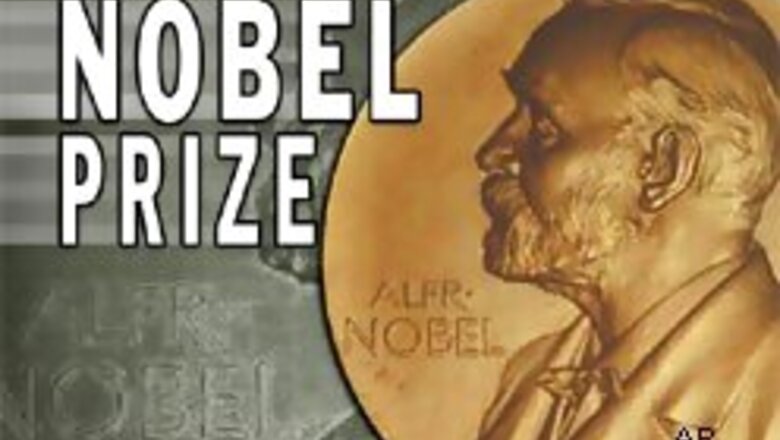
views
Stockholm; American Roger D Kornberg won the 2006 Nobel Prize in chemistry on Wednesday, honoured for his work on how information stored within a gene is copied and transferred to the parts of cells that produce proteins.
Kornberg was the first to create an actual picture of this process at the molecular level, in the important group of organisms called eukaryotes - which, as opposed to bacteria, have well-defined cell nuclei.
Mammals, as well as ordinary yeast, belong to this group of organisms.
"Understanding of how transcription works also has a fundamental medical importance," the Royal Swedish Academy said in its citation in announcing the award.
"Disturbances in the transcription process are involved in many human illnesses such as cancer, heart disease and various kinds of inflammation."
The 59-year-old is part of the Stanford University School of Medicine in Palo Alto, California, and his father, Arthur Kornberg, won the Nobel Prize in medicine in 1959 for his studies of how genetic information was transferred from one DNA molecule to another.
He is the lone winner of the prize, and the fifth American to win a Nobel prize this year.
So far, all the prizes - medicine, physics and chemistry - have gone to Americans.
Last year's Nobel laureates were France's Yves Chauvin and Americans Robert H Grubbs and Richard R Schrock, who were honoured for discoveries that let industry develop drugs and plastics more efficiently and with less hazardous waste.


















Comments
0 comment